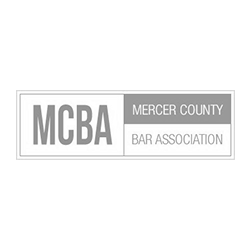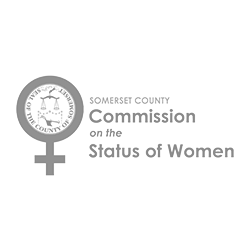Sexual Harassment
The most common form of hostile work environment harassment is sexual harassment. But harassment on the basis of any protected status (such as age, race, national origin or sexual orientation) is a form of discrimination and is prohibited by the New Jersey Law Against Discrimination (NJLAD). If you have been harassed because of some protected status, and that harassment has created a hostile work environment, then you may have a claim under the NJLAD. The Princeton, New Jersey harassment lawyers at Mason, Griffin & Pierson, P.C. can help you establish your claim. The attorneys must prove that the complained-of conduct actually occurred. The conduct can consist of a single very severe incident or an accumulation of incidents. When the conduct consists of multiple incidents, you should not consider each incident individually, but should consider the totality of the incidents. The issue that must be decided is not whether you personally believed your working environment was hostile. The issue is whether a reasonable person of your age or with your protected status. would find the working environment hostile.
In this day and age, it is hard to imagine that sexual harassment still occurs in the workplace, but it does. Whether you are employed in a Fortune 500 company, or a small “mom and pop” business, sexual comments, innuendos, emails, photos and even unwanted touching and propositioning, take place with disturbing frequency. There are two forms of sexual harassment: hostile work environment sexual harassment, and quid pro quo sexual harassment. Quid pro quo sexual harassment involves a threat, whether actual or implied, that if you do not submit to your employer’s sexual demands, you will be fired or suffer some other adverse employment action (such as suspension or demotion). The more common type of sexual harassment is hostile work environment sexual harassment. Both are wrong, but sexual harassment is not as obvious and may be harder to prove.
Filing a Sexual Harassment lawsuit
If you believe you have been subjected to a hostile work environment in New Jersey, you may want to file a sexual harassment lawsuit. First you must prove that offensive conduct actually occurred, and then you must prove that the conduct constitutes sexual harassment. The skilled Princeton sexual harassment attorneys at have the knowledge and experience necessary to help you prove your claim. When we discuss your sexual harassment case, we focus on the following issues which must be demonstrated:
1. Did the Conduct Occur?
Often, sexual harassment has no witnesses. It is a classic “he said, she said” situation. Do you have any documents to help prove the conduct occurred, such as an emails, photos, cards, even a text message? If not, don’t give up. Your good credibility is enough to prove the offensive conduct occurred. But one important thing you can do, particularly if you are still working in a sexually offensive environment, is to keep a journal of the comments and conduct you are subjected to. It is important to keep this record contemporaneously, as the incidents occur. In other words, as soon as possible after the comment or conduct occurs, write it down!
2. Does the Conduct Constitute Sexual Harassment?
To prove that the conduct constitutes sexual harassment, you must be able to prove two elements by a preponderance of the evidence. First, you must prove that the conduct would not have occurred “but for” your sex. Second, you must prove that the conduct was severe or pervasive enough to make a reasonable woman believe that the conditions of employment and the working environment were altered and that the working environment had become intimidating, hostile or abusive.
- Did the Conduct Occur “Because Of” Your Sex?
You must prove that the conduct occurred because of your sex. Stated differently, you must prove that the conduct would not have occurred if you had been a man. If you have been subjected to a sexual touching and comment, it is easy to establish that the harassment occurred “because of” your sex. But, a claim for sexual harassment does not require that the defendant be motivated by the desire for sexual gratification. Also, you do not have to prove that your employer or supervisor intended to harass you or intended to create a hostile working environment. The employee’s or supervisor’s intent is not at issue. The issue is simply whether the conduct occurred because of your sex.
- Was the Conduct Sufficiently Severe Or Pervasive?
You must also prove that the conduct constituting sexual harassment was severe or pervasive enough to make a reasonable woman believe that the working conditions were altered and that the working environment had become intimidating, hostile or abusive. At trial, a jury will be instructed that, when deciding whether plaintiff has proved this element, they should consider the following:
(1) The law does not require that the workplace be free of all vulgarity or sexually-laced speech or conduct. Offensive, crude or inappropriate comments are not automatically discriminatory because the words used are tinged with sexual connotations. Occasional, isolated and/or trivial remarks or conduct of a sexual nature are generally insufficient to constitute sexual harassment. Rather, only speech or conduct that is sufficiently severe or pervasive to create a hostile or intimidating working environment can constitute sexual harassment.
(2) In determining whether the conduct is severe or pervasive, keep in mind that the conduct does not have to be both severe and pervasive; the conduct need only be severe or pervasive. The conduct can consist of a single severe incident or an accumulation of incidents. To evaluate the severity of the conduct the jury should consider several factors including whether: (a) the conduct was perpetrated by a high ranking employee of the defendant; (b) the conduct occurred at a place of employment that, by its nature, would not normally include offensive or crude language or conduct; (c) the employer had knowledge of plaintiff’s particular sensitivity to offensive/aggressive behavior of a sexual nature.
(3) In deciding whether the conduct is sufficiently severe enough to create a hostile working environment, the jury must view the conduct from the perspective of a “reasonable woman,” not from the plaintiff’s own subjective perspective. In other words, the issue it must decide is not whether the plaintiff personally believed that her working environment was hostile. The issue it must decide is whether a reasonable woman would find the working environment hostile. Thus, if only an overly-sensitive woman would view the conduct as sufficiently severe to create a hostile working environment, but a reasonable woman would not, it is not harassing conduct for which the plaintiff can recover. However, just because the plaintiff’s reaction to the conduct was particularly severe, the conduct may still be sufficiently severe to cause a reasonable woman to feel that her working condition were altered and her working environment had become intimidating, hostile or abusive. A jury will use its own judgment in deciding whether a reasonable woman would consider the working environment hostile.
Finally, it is not necessary to show that you have actually been psychologically harmed by the conduct, or that you suffered any economic loss as a consequence of the conduct. Those issues may be relevant to the amount of damages you can recover, but they are not relevant to the issue of whether the conduct constitutes unlawful harassment.
-


-
Ian Hammett- Estate Planning Article SeriesTips for College Students & Parents: Be Prepared
As families begin to plan for their child’s transition into college, there are many practical logistics to consider. One such item that should be on the top of the list is to ensure they are prepared to be on their own from a legal perspective. At Mason, Griffin & Pierson, we offer a program to counsel college students and their parents in such matters. To find out more about preparing documents for your student, Click Here.
“Do I really need a Will?“ The answer for almost all adults in New Jersey, from those just starting out to those well into retirement years, is yes, you should have a Will.
At Mason, Griffin & Pierson, we can assist clients develop a comprehensive estate plan to express their wishes that incorporates, as appropriate, estate and gift tax planning strategies and prepare the documents. Documents include Last Wills and Testaments, Powers of Attorney, and Advance Directives for Health Care.
To find out more about estate planning, Click Here. To schedule a no obligation consultation, Click Here. -
New Reporting Requirements Corporate Transparency Act On January 1, 2024, reporting requirements under the Corporate Transparency Act ("Act"), went into effect. All businesses subject to the Act will have to report specific information on the company and certain individuals that own and/or control the company. Mason, Griffin & Pierson is happy to guide you through this reporting process and answer any questions that you may have. Please do not hesitate to reach out if you would like our assistance.
On January 1, 2024, reporting requirements under the Corporate Transparency Act ("Act"), went into effect. All businesses subject to the Act will have to report specific information on the company and certain individuals that own and/or control the company. Mason, Griffin & Pierson is happy to guide you through this reporting process and answer any questions that you may have. Please do not hesitate to reach out if you would like our assistance.
-
Sharon A. Dragan receives the Michael A. Pane Ethics In Government Award Congratulations to Sharon A. Dragan for receiving the Michael A. Pane Ethics In Government Award. The award was presented by the NJILGA at the New Jersey State League of Municipalities November convention. The Michael A. Pane Ethics In Government Award honors a municipal professional who exemplifies the highest standards of ethics and whose work has significantly enhanced the integrity of local government. November 2023
The Michael Pane Award, established by the Pane Family and the New Jersey State League of Municipalities, is given in honor of Michael A. Pane, Sr., who was the long-time editor of the Municipal Law Review, president and trustee of the New Jersey Institute of Municipal Attorneys, counsel to the New Jersey Association of Municipal Clerks, counsel to the League of Municipalities and author of the New Jersey Practice Series, Local Government Law volumes.
Congratulations to Sharon A. Dragan for receiving the Michael A. Pane Ethics In Government Award. The award was presented by the NJILGA at the New Jersey State League of Municipalities November convention. The Michael A. Pane Ethics In Government Award honors a municipal professional who exemplifies the highest standards of ethics and whose work has significantly enhanced the integrity of local government. November 2023
The Michael Pane Award, established by the Pane Family and the New Jersey State League of Municipalities, is given in honor of Michael A. Pane, Sr., who was the long-time editor of the Municipal Law Review, president and trustee of the New Jersey Institute of Municipal Attorneys, counsel to the New Jersey Association of Municipal Clerks, counsel to the League of Municipalities and author of the New Jersey Practice Series, Local Government Law volumes.
-
Liz Zuckerman appointed to the District VII Ethics Committee: The Supreme Court of New Jersey appointed Elizabeth Zuckerman to serve on the District Ethics Committee for District VII (DEC VII) for a three-year term. The district includes Mercer County. August 23, 2023
The Supreme Court of New Jersey appointed Elizabeth Zuckerman to serve on the District Ethics Committee for District VII (DEC VII) for a three-year term. The district includes Mercer County. August 23, 2023
-
Paul M. Bishop named Director We are pleased to announce the election of Paul M. Bishop to the Board of Directors, Mason, Griffin & Pierson, PC. Paul, one of the firm’s senior litigators, practices business, commercial, and general litigation, and represents clients in complex disputes throughout New Jersey’s state and federal courts. July 2023
We are pleased to announce the election of Paul M. Bishop to the Board of Directors, Mason, Griffin & Pierson, PC. Paul, one of the firm’s senior litigators, practices business, commercial, and general litigation, and represents clients in complex disputes throughout New Jersey’s state and federal courts. July 2023
- June 2022
- October 2021
- May 2021
- March 2021
- February 2021
- January 2021
- December 2020
- March 2020
- February 2020
- January 2020
- December 2019
- October 2019
- July 2019
- June 2019
- May 2019
- March 2019
- January 2019
- December 2018
- November 2018
- October 2018
- September 2018
- June 2018
- May 2018
- April 2018
- March 2018
- February 2018
- January 2018
- December 2017
- November 2017
- October 2017
- September 2017
- August 2017
- June 2017
- May 2017
- April 2017
- February 2017
- December 2016
- November 2016
- October 2016
- September 2016
- July 2016
- June 2016
- May 2016
- April 2016
- March 2016
- February 2016
- January 2016
- December 2015
- November 2015
- October 2015
- September 2015
- July 2015
- June 2015
- May 2015
- April 2015
- March 2015
- February 2015
- January 2015
- December 2014
- November 2014
- October 2014
- September 2014
- August 2014
- July 2014
- June 2014
- May 2014
- April 2014
- March 2014
- February 2014
- January 2014
- December 2013
- November 2013
- October 2013
- September 2013
- August 2013








